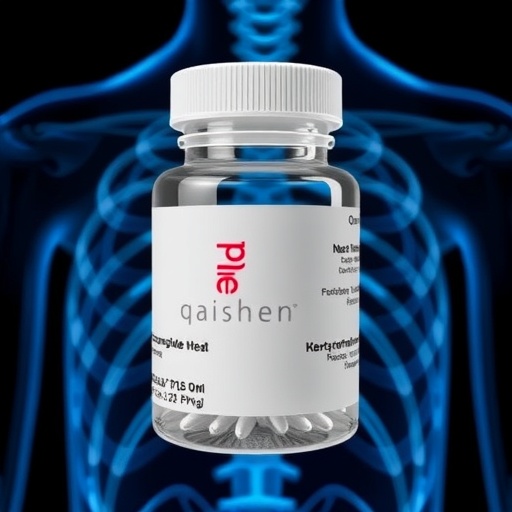Cardiovascular diseases remain a leading cause of morbidity and mortality worldwide, and heart failure, particularly with preserved ejection fraction (HFpEF), poses unique treatment challenges. The pathophysiology of HFpEF is multifactorial, leading to significant research efforts aimed at finding effective therapeutic options. A promising intervention is the Qishen granule, an herbal formulation that has garnered attention for its potential efficacy and safety in treating this complex condition.
The introduction of the Qishen granule is rooted in traditional Chinese medicine, where it is traditionally utilized to promote cardiovascular health. Recent scientific advancements have sought to investigate its properties through rigorous clinical trials. In a forthcoming study protocol, researchers—including prominent scholars Chen, H., Li, Z., and Su, M.—plan to conduct a multicenter, randomized, double-blind, placebo-controlled trial to deeply examine the granule’s effects on heart failure patients with preserved left ventricular ejection fraction.
This clinical trial design is essential as it encapsulates the gold standard for evaluating therapeutic interventions. The double-blind nature of the study will ensure that neither the participants nor the researchers know who is receiving the active treatment versus the placebo, thus minimizing bias. This methodology will also enhance the reliability of the results, providing robust evidence that healthcare professionals can trust when considering new treatments for heart failure.
The study will involve multiple centers, which is particularly valuable for capturing a diverse participant population. This aspect is crucial, as heart failure can manifest differently across various demographics, including age, sex, and comorbidities. By including a broader participant base, the study can yield insights that may translate effectively into clinical practice across different patient groups. Validating the effects of Qishen granule in diverse settings will enhance the generalizability of the findings.
Efficacy and safety stand as paramount considerations in the design of any clinical trial, particularly in a vulnerable patient population such as those afflicted with heart failure. The assessment of efficacy will focus on clinical endpoints pertinent to heart failure management, including improvements in functional capacity, quality of life measures, and cardiac biomarkers. Conversely, the safety profile will encompass a comprehensive review of adverse events, ensuring that the well-being of participants is prioritized throughout the study’s duration.
In addition to traditional endpoints, the trial may also explore innovative metrics associated with patient-centered outcomes. Techniques like echocardiographic evaluations could provide insights into heart function improvements, adding depth to the analysis of Qishen granule’s impact. As research progresses in cardiology, adopting multifaceted assessment strategies will be critical to advancing patient care and personalizing treatment regimens.
The design of this trial stands as a significant step in bridging the gap between traditional medicine and contemporary clinical practice. Herbal remedies, such as Qishen granule, often lack the rigorous scrutiny faced by conventional pharmaceuticals. By embarking on this organized clinical assessment, the research team acknowledges the potential benefits of integrating traditional therapies with evidence-based methodologies, laying the groundwork for more holistic approaches to cardiovascular health.
As the trial progresses, findings may not only validate the use of Qishen granule for HFpEF but could also provide a framework for subsequent research into other herbal formulations. Success in this venture could catalyze a broader examination of natural products in the therapeutic landscape, potentially leading to a paradigm shift in how heart conditions are managed.
Advertently, the exploration of the biological mechanisms driving Qishen granule’s effects will also be paramount. Investigating how the granule interacts with cardiac cells at a molecular level could unveil new insights into its therapeutic properties. Understanding such interactions could lead not only to enhanced treatment for heart failure but might also illuminate aspects of cardiac resilience and recovery, potentially influencing approaches to other cardiovascular ailments.
These explorations are aligned with the growing emphasis on personalized medicine in cardiology. The integration of genomics and patient-specific parameters into therapeutic strategies represents a frontier in which herbal treatments could play a significant role—particularly as research supporting their efficacy and safety becomes increasingly robust.
As this landmark trial unfolds, the implications extend beyond the mere treatment of heart failure. The results may influence policy decisions regarding the inclusion of complementary medicine in mainstream clinical practice, potentially reshaping how health systems approach holistic care models. Empowering practitioners with evidence-based tools—including herbal agents—could enhance their ability to address the nuanced needs of heart failure patients.
Furthermore, these research efforts could greatly benefit public health initiatives, particularly in areas where access to traditional health therapies gives rise to health disparities. By validating traditional agents like Qishen granule in a rigorous clinical context, researchers provide the groundwork for ensuring equitable access to effective treatments worldwide.
In summary, the study protocol put forth by this esteemed group of researchers could represent a significant milestone in the field of cardiology. As society increasingly values holistic and integrated approaches to health, such rigorous evaluations of traditional interventions are not only timely, but sorely needed. The coming months will undoubtedly be pivotal, as the world awaits the results of this study with keen anticipation, eager to witness the evolution of heart failure management.
Subject of Research: Efficacy and safety of Qishen granule for treating heart failure with preserved ejection fraction.
Article Title: Efficacy and safety of Qishen granule for treating heart failure with preserved ejection fraction: a study protocol for a multicenter, randomized, double-blind, placebo-controlled trial.
Article References: Chen, H., Li, Z., Su, M. et al. Efficacy and safety of Qishen granule for treating heart failure with preserved ejection fraction: a study protocol for a multicenter, randomized, double-blind, placebo-controlled trial. BMC Complement Med Ther 25, 298 (2025). https://doi.org/10.1186/s12906-025-05029-z
Image Credits: AI Generated
DOI:
Keywords: Heart failure, preserved ejection fraction, Qishen granule, clinical trial, herbal medicine, efficacy, safety, traditional Chinese medicine, multicenter, placebo-controlled, randomized, cardiovascular health.




